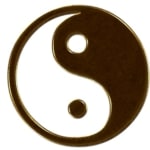Why Does Winter Solstice Affect Us? Learn to Embrace the Darkness
Lately we’ve been exposed to night falling earlier and earlier. Some of us are waking up when it’s still dark or driving home when it’s still dark. And some of us have the darkness at both the beginning and end of our work days. That darkness can make us feel more sluggish, and dread this time of year. However, to the ancients, this was an incredibly important and powerful time of year. Let’s look beyond the darkness and see, Why Does Winter Solstice affect us?

When Is Winter Solstice?
The Winter Solstice falls on December 21. It is known as the longest night and shortest day of the year. The farther away from the equator, the more evident the differences become. Winter Solstice is known as the extreme of winter, or midwinter. By most estimations, it’s the time we recognize as winter fully being here. Its opposite is the Summer Solstice, which falls on June 21. That’s when the sunlight is at its ultimate, when night is shortest, and light prevails. As soon as the Winter Solstice passes, the days gradually lengthen. But, for now, there’s a lot of darkness
So, what do we do when we are surrounded by darkness? What’s the best way to celebrate this time of year? In Chinese Medicine, we are aware that we are a part of nature. As a result, the seasonal changes affect us; bringing different values and reminders of how to remain integrated in this wholeness. This is the time of utmost Yin. Yin is the black half of the Tai Ji symbol that is usually referred to as the yin-yang symbol. Yin is about darkness, night, winter, cold, the interior, the directions going down and deep, and receptivity.
Receptivity: Where we struggle
I look at that list and think of darkness, night winter, cold, and they don’t occur to me as generative. But then the list continues with the interior, and going deep. And receptivity is such a interesting concept. Being able to actually receive is a skill that I find many of have a little trouble with. As a result, it often shows up for us so we feel we don’t get any praise, recognition, or credit we deserve. When in reality, we simply are not good at receiving, and thus “can’t hear” it when it is offered. How often have you been complimented, and you brush it aside with, “Oh that was nothing.” “You would have done the same thing.” “Oh, This Old Thing?” Instead of simply saying, “Why Thank you!” It is an example of our inability to receive.

How Yin and Yang are connected
Alternatively, Yang is white half of the Tai Ji symbol. It is about light, day, summer, heat, the exterior, going up and out, and projection. The winter solstice is when yin exceeds yang, when light retreats and darkness is abundant. It is a time for storage and saving energy. Therefore it’s important to support and nourish yang now, because this sets us up for health in the future. This is why the Winter Solstice is a time to be gentle with ourselves and do as much as we can to honor the darkness.
Attributes Associated with Winter
Each of the seasons has correspondence with an element, organs, and many other attributes. Winter is the water element, and in addition to water being the foundation of life, it also corresponds with the color black, the temperature cold, and the organ Kidneys. This Eastern definition of the Kidneys includes the adrenal glands, which means this is a time to rest to prevent burn out. If we’re already feeling a little drained, this is the time to recuperate. Meditation, yoga, qi gong, mindful walking and other slow, intention filled exercise helps. And, so does sleeping more! Going to bed earlier and sleeping a little later during this season is nourishing.
The Kidney is associated with the transmission of genetic information through generations, so now is the time to honor our family traditions, through ceremonies, rituals, and quality time spent with loved ones. It’s a time to reflect on what has come before, and to pay respect to what has brought us this far.
Have you ever wondered why all the major belief systems have a significant ritual this time of year? Christmas, Chanukah, Kwanza, Paganism, to name a few, all have rituals that bring together family, tradition, ceremony. It all starts to make a different kind of sense now.
Ready for treatment?
Call 503-246-0103 to schedule an appointment.
Have a question?
To submit an inquiry to one of our professionals, email us at contact@riverwestacupuncture.com.Have a question about acupuncture or some of our other services? Send us your question and we’ll get back to you shortly with a reply!
